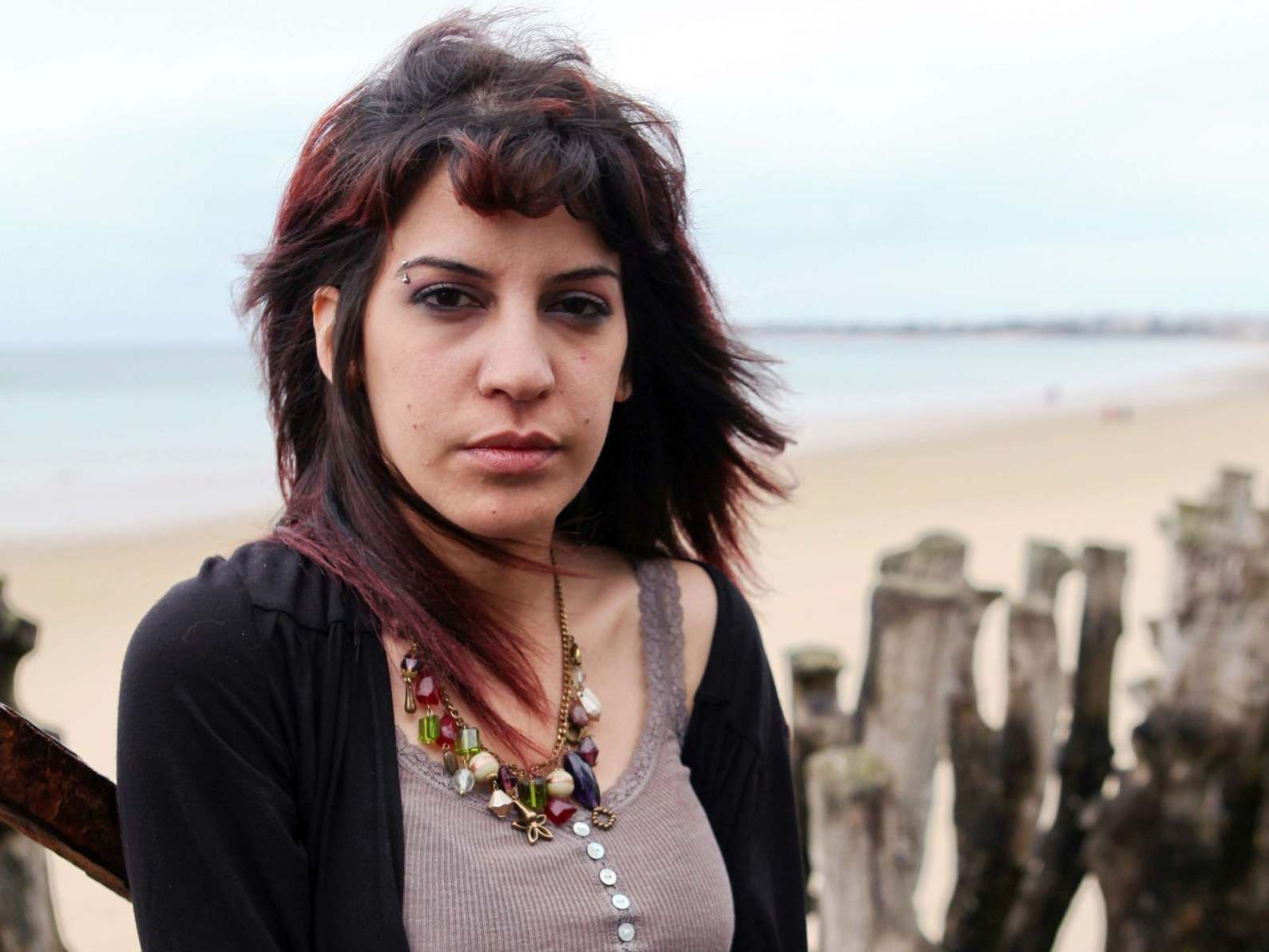Lina Ben Mhenni: Tunisian political activist and blogger who chronicled the Arab Spring
Her defiance of censorship and advocacy of women’s rights won her many admirers around the world

Lina Ben Mhenni was a celebrated Tunisian blogger and political activist who rose to prominence when the Arab Spring took root in Tunisia: her blog, A Tunisian Girl, detailed – in Arabic, French and English – the struggle of the Tunisian people against the autocratic regime of President Zine el-Abidine Ben Ali.
Following the overthrow of Ben Ali, Mhenni – who has died at the age of 36 from a stroke resulting from complications with an autoimmune disease – then branched out to report on, and critique, many aspects of Tunisian politics and society. As far as Mhenni was concerned, the revolution may have established a functioning democracy in Tunisia but the new government continued to betray the people in many ways.
Mhenni was the eldest child of Sadok Ben Mhenni and Emna Ben Ghorbal. Her father was a political activist who spent six years imprisoned by Ben Ali’s regime while Mhenni was a child. Her mother, who was an Arabic teacher, was also involved in political activism. Mhenni studied English at Tunis University and taught Arabic for a year at Tufts University outside Boston.
She returned to Tunis to teach English at the university there. Suffering from lupus, she was often hospitalised and, in 2007, her mother donated a kidney to Mhenni. In 2007 and 2009 she participated in the World Transplant Games, winning silver for walking in the latter. It was while recovering from the transplant that Mhenni began blogging, her posts focusing on censorship, women’s rights and discontent in Tunisia.
Ben Ali’s government considered her social media posts a threat and blocked her blog within Tunisia, forcing her to use proxy sites to access it. After organising a protest against government censorship in Tunis in May 2010, security forces broke into the Mhenni family home and stole her electronic equipment.
“It was very dangerous to be a blogger under Ben Ali,” she told The New York Times in October 2011. “Of course I had fear, but when I saw people killed by the police I forgot it and it gave me the strength to do my work.”
In mid-December 2010 she and other Tunisians became aware of Mohamed Bouazizi, a fruit vendor in the city of Sidi Bouzid who had set himself on fire in protest at how the local authorities and police constantly harassed him (including confiscating his produce). Bouazizi’s death became the spark that fired the Arab Spring and Mhenni travelled to Sidi Bouzid. Reporting what she had learnt via social media, Mhenni found herself surfing an uprising – her intelligence and reporting skills meant her reports were quickly being read by Tunisian activists and a wide international audience. She posted photos and videos of protests and those injured and killed during such, even going to hospitals to document the wounded.
Mhenni was the only blogger present in Tunisia’s interior cities of Kasserine and Regueb where government forces brutally suppressed protests. As French media outlets were banned from entering Tunisia, several began relying on Mhenni’s blog reports.
Ben Ali resigned on 14 January 2011, fleeing Tunisia for Saudi Arabia. Mhenni participated briefly in the interim government’s reforms to media and information laws. In April she was awarded the Deutsche Welle International Blog Award for A Tunisian Girl, and in June her 32-page memoir, Tunisian Girl: Blogueuse pour un printemps arabe, was published in French.
Later that year it was reported that she had been nominated for the Nobel Peace Prize. In October 2011 she won El Mundo’s International Journalism Prize for her “fight for freedom”. Post-revolution she remained an outspoken critic of Tunisia’s politicians and the flaws in its society. Her criticism of fundamentalist Islam marked her a target and since 2013 – when her name was found on the hit list of a local terrorist cell – she was shadowed by a government-appointed police officer.
Her death brought about an outpouring of emotion across the Arab world. Tunisian president Kais Saied said: “There are women who history does not forget. There are women who make history.”
Her funeral procession saw her coffin escorted on the shoulders of women and, when reaching the cemetery, hundreds of mourners burst into applause.
She is survived by her parents and a younger brother.
Lina Ben Mhenni, activist and blogger, born 22 May 1983, died 27 January 2020
Join our commenting forum
Join thought-provoking conversations, follow other Independent readers and see their replies
Comments
Bookmark popover
Removed from bookmarks